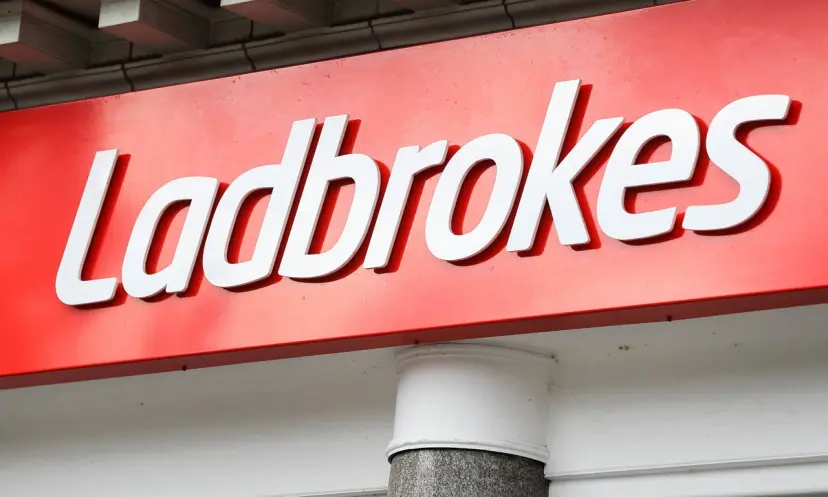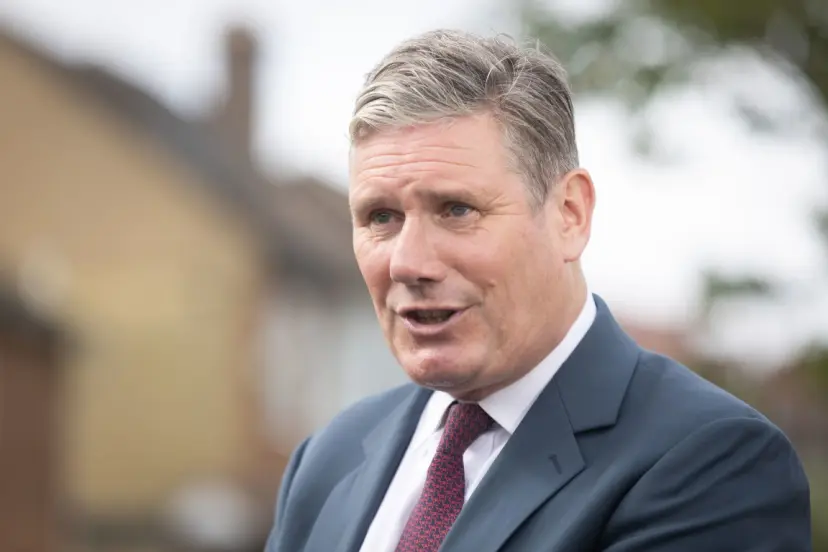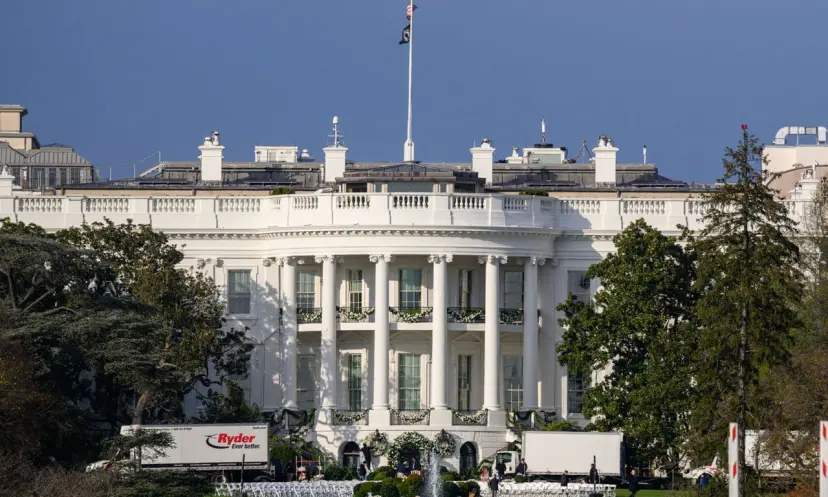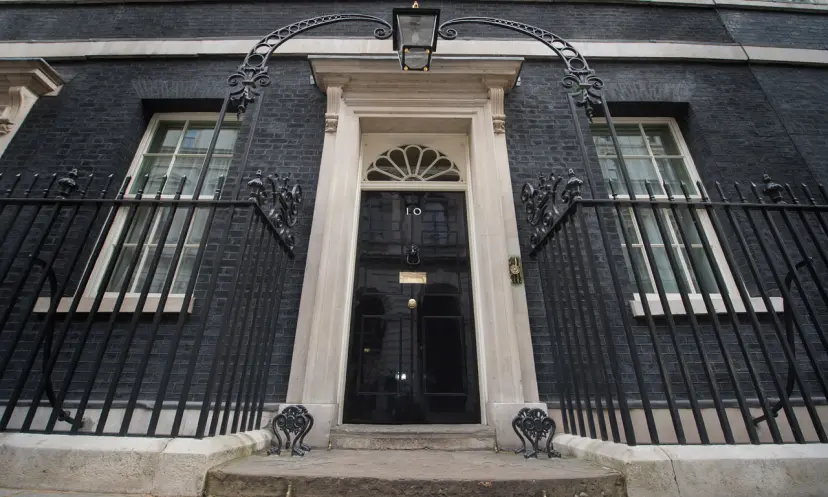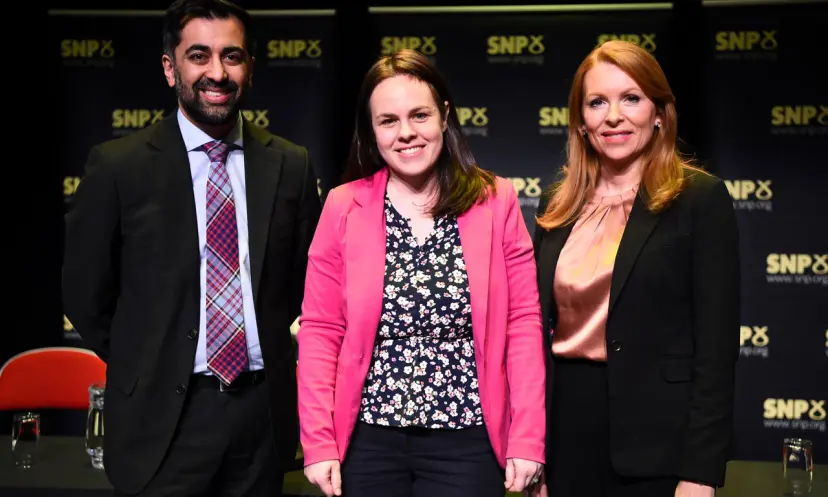The race to replace Johnson: Who will be the next Conservative Party leader?
Published: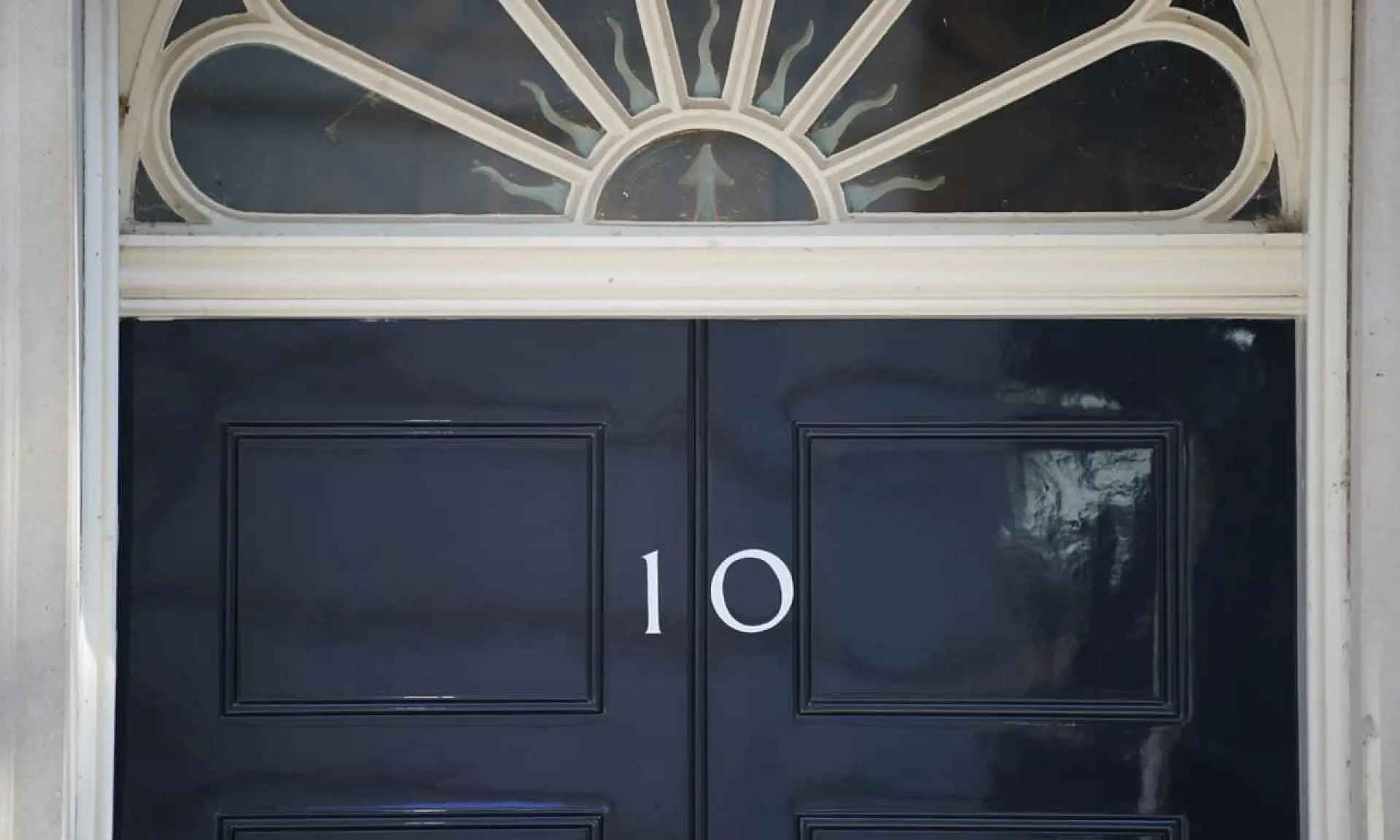
Who will be the next Conservative Party leader?
This will be the 12th Conservative Party leadership contest since the current selection process was first used in 1965. We’ve crunched the numbers from the previous 11 to work out which of the candidates has the edge this year and you can also read about the candidates and their next Tory Party leader odds.
Southern candidates fare better
With all the talk of red and blue walls at recent elections, it is clear that geography plays a significant role in British politics and the Conservative Party is not immune to this. Leadership candidates from the south of England have fared best and none more than those who represented a seat in the capital.
In the 2019 contest, Boris Johnson continued the winning habit of London-based MPs, becoming the fifth out of nine to successfully win the ballot under the current system.
After London, the south east of England has provided the next most leaders since 1965 with three, albeit from a larger pool of 13 contenders, and has five representatives this time around.
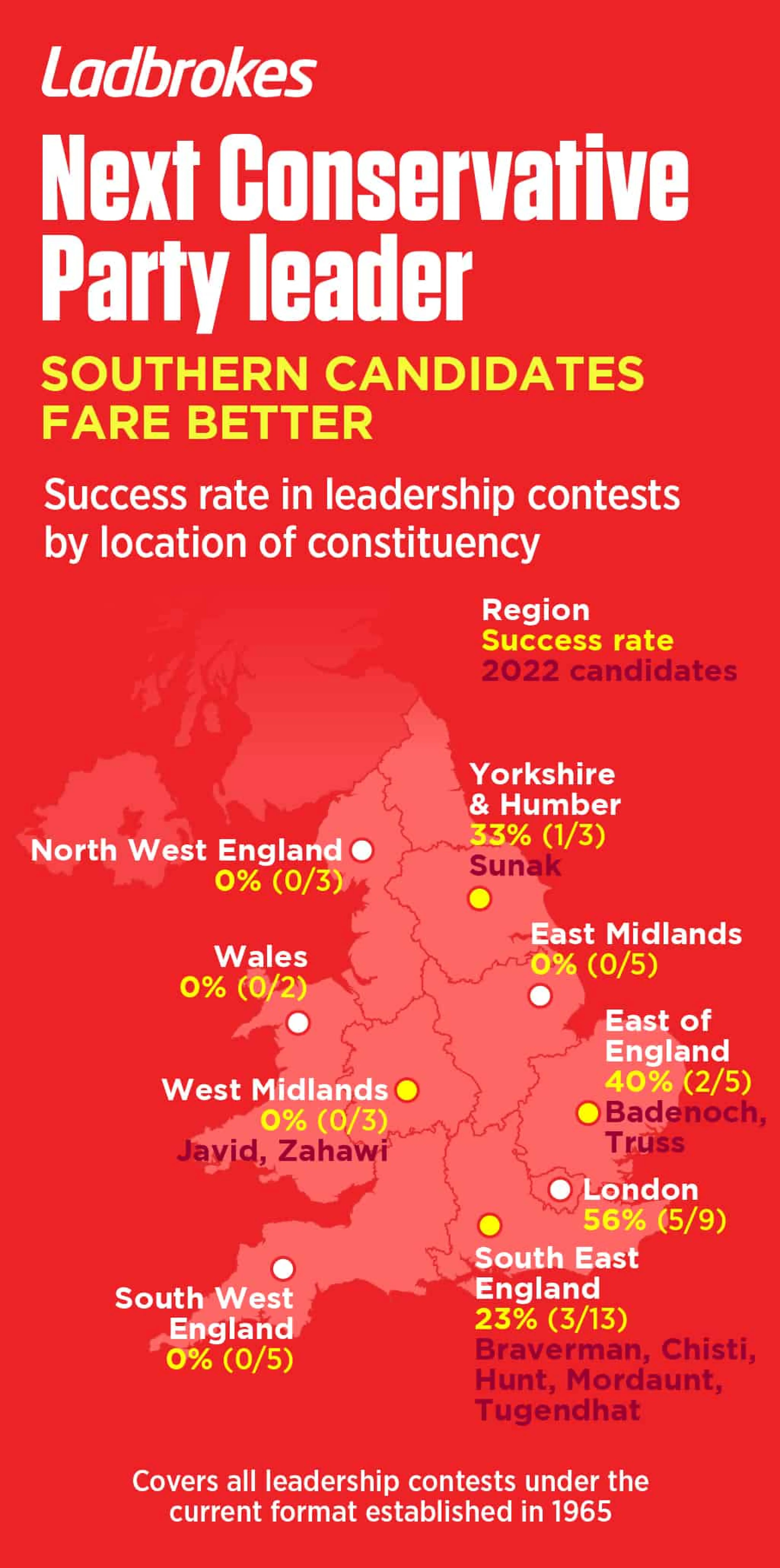
The two candidates from an east of England seat can be slightly more optimistic as two of the previous five contests to feature an MP from this region prevailed. Both of those wins were delivered by John Major, who won in 1990 and successfully defended his premiership in 1995, but that is still a good omen for one of the early favourites: Norfolk-based Liz Truss.
Youth beats experience
For a party whose average voter tends to be fairly old, the Conservatives have developed a taste for younger leaders. While the last two winners – Theresa May and Boris Johnson – were among the more experienced candidates, this is a relatively recent phenomenon.
Each of the four previous contests that saw more than two candidates running were won by the youngest name on the ballot.
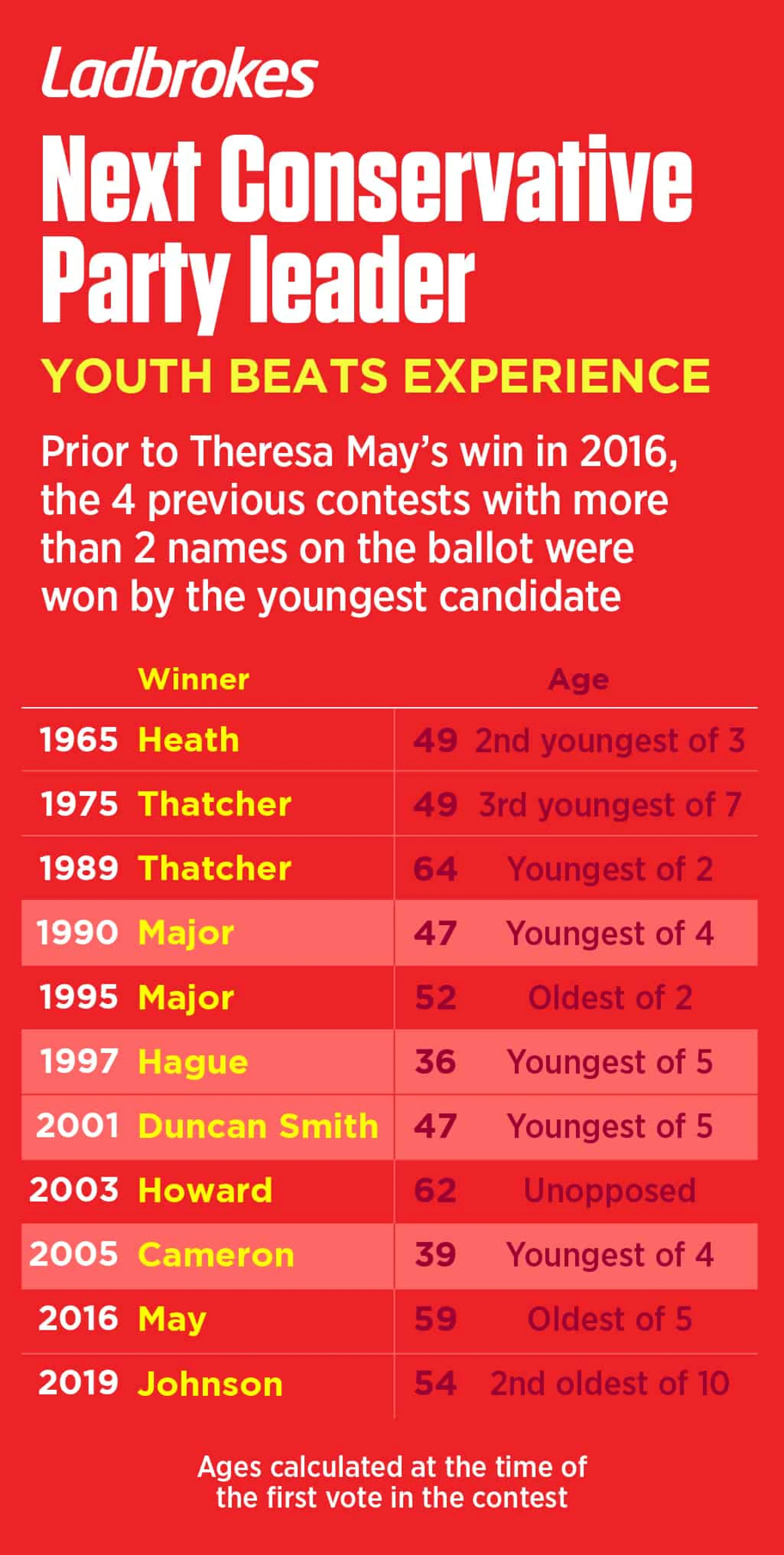
This is good news for this year’s youngest contender Rishi Sunak, who only recently turned 42. Coincidentally there’s a geographical factor in his favour too: the youngest winner under the current system was a then 36-year-old William Hague in 1997, who held the same Richmond (Yorkshire) seat that Sunak now occupies.
Losing is a habit
There have been eight candidates who stood in a leadership contest having failed in a previous attempt and none of them were able to win the confidence of the party. While Michael Howard did become leader in 2003 after failing in 1997, he was elected unopposed.
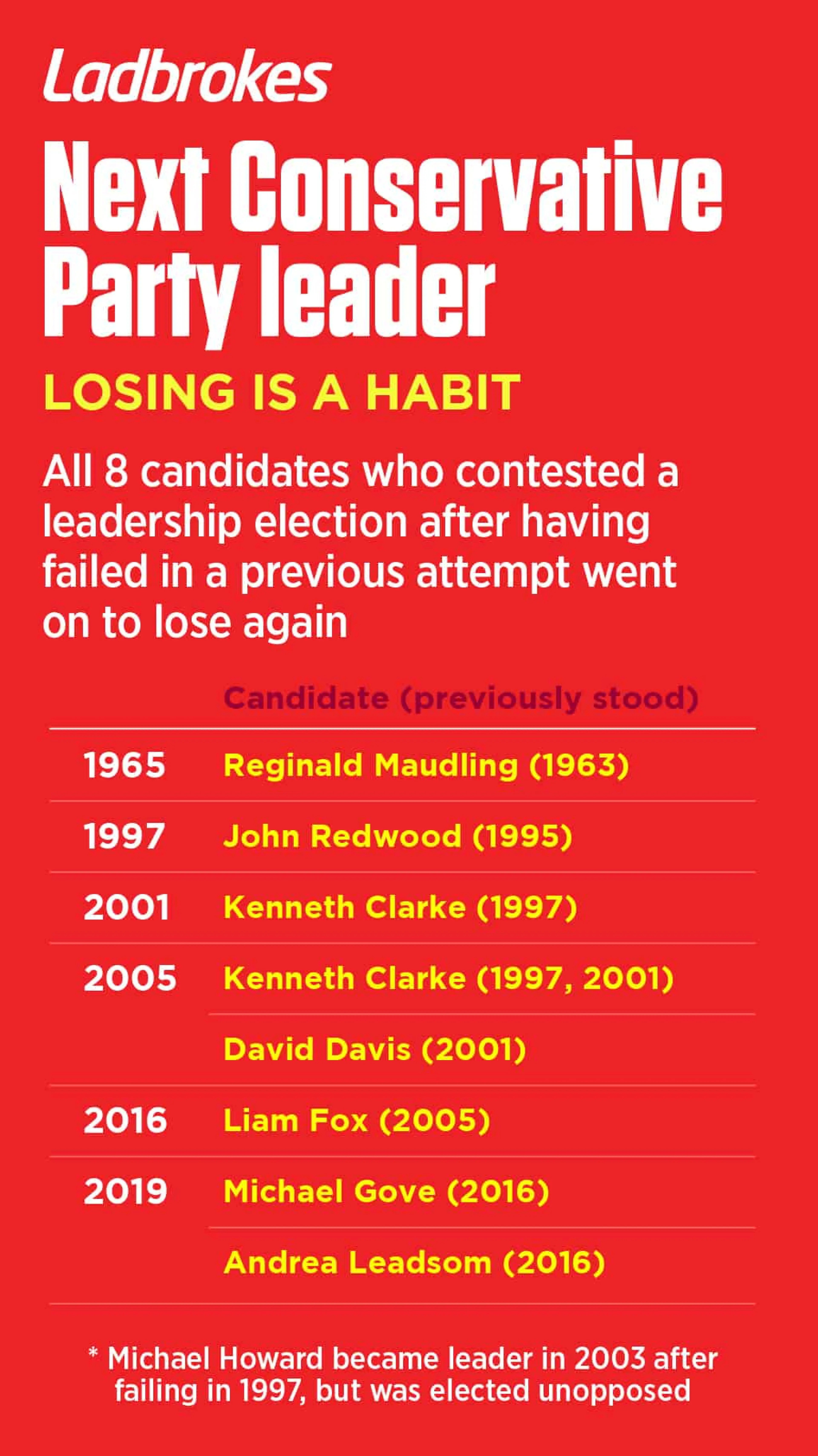
This is bad news for Jeremy Hunt and Sajid Javid, who both lost out to Boris Johnson in 2019 and are trying again this year.
Previous roles matter
There’s no love lost between Boris Johnson and his predecessor John Major, but the outgoing Prime Minister emulated his rival by making the 2019 contest the third won by a former Foreign Secretary. This is more good news for Liz Truss and potentially a silver lining for outsider Jeremy Hunt.
However both Hunt and Javid have also sipped from the poisoned chalice that is Health Secretary, whose past incumbents have failed in all six attempts at becoming Conservative leader. Kenneth Clarke (three times), Matt Hancock and Enoch Powell have all found the health brief to be a millstone in previous contests, along with Hunt himself in 2016.
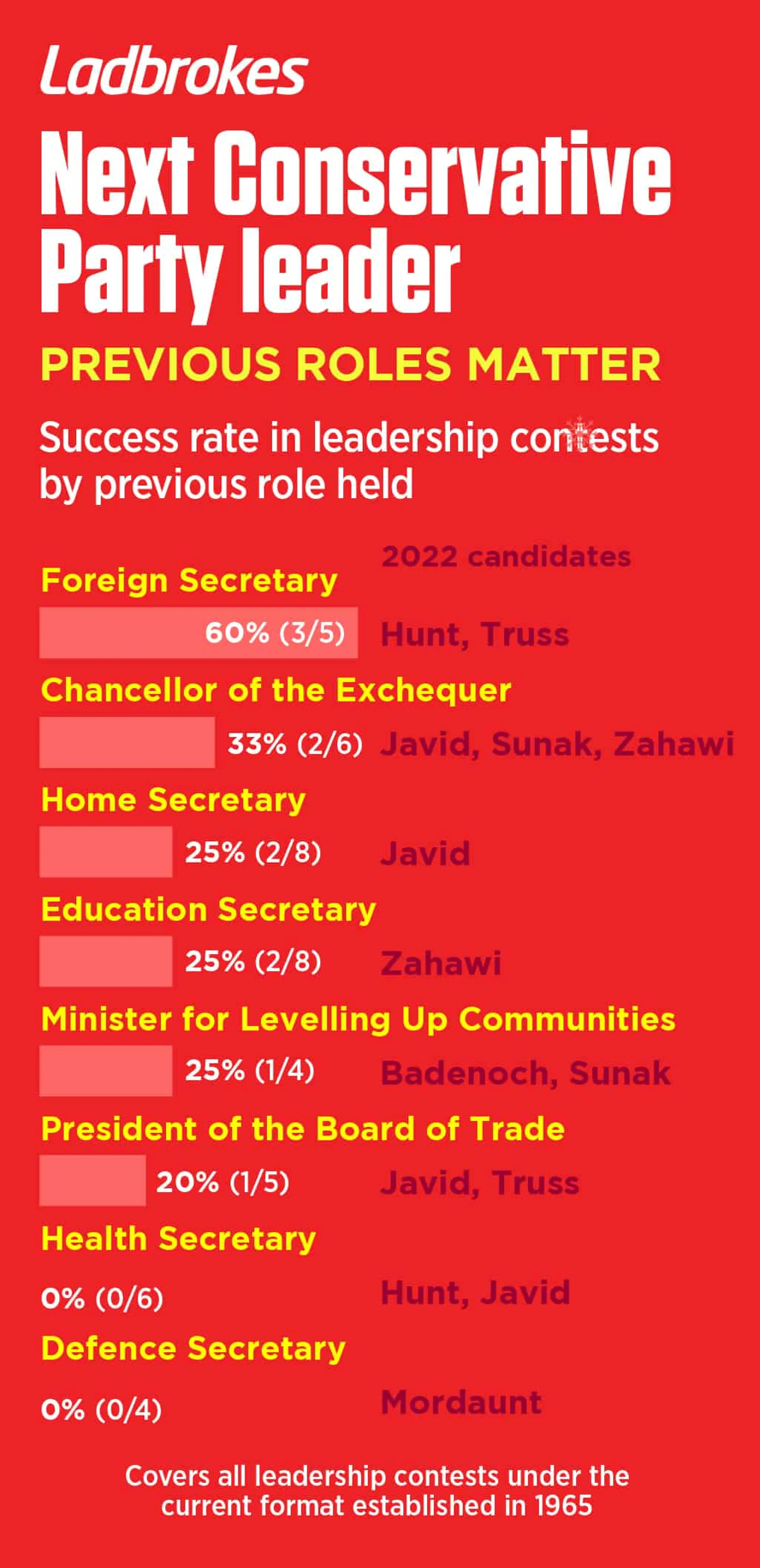
The roles of Chancellor, Home Secretary and Education Secretary have each produced two winners however and Javid has held two of these roles. While the same is technically true of Nadhim Zahawi, he has only just taken over from Rishi Sunak at 11 Downing Street.
One of this year’s front-runners is Penny Mordaunt but her previous posting as Defence Secretary could count against her. Hugh Fraser, Michael Heseltine, Michael Portillo and Liam Fox all failed in a leadership contest with it on their CV, so perhaps it’s no surprise that the incumbent Ben Wallace didn’t throw his hat into the ring this time around.

